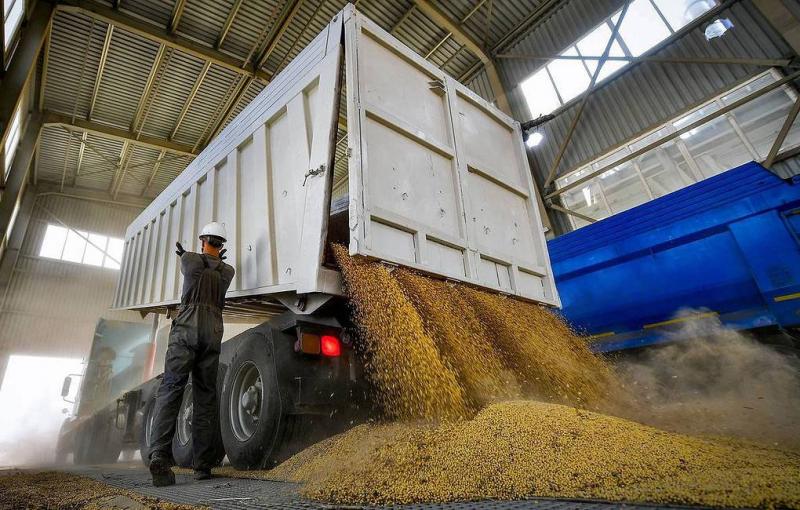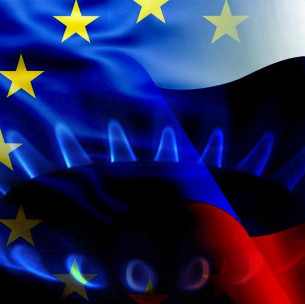
© Yuri Smityuk/TASS
In early 2022, shortly after the military conflict between Ukraine and Russia began, the EU abolished quotas and duties on the supply of Ukrainian products to its market as part of its support for that country. Cheap Ukrainian agricultural products flooded into the European market to become ten times higher than supplies to African and Asian states.
Brussels was assumed to arrange convoys of trucks, trains and barges to transport grain to the ports with a subsequent shipment to countries in need. But Western commercial traders failed to show proper solidarity and refused to pay for far more expensive transportation than traditional Black Sea trade. And Ukrainian agricultural products bought up by Western companies for resale got stuck in Europe.
Eastern European countries suffered the most as they do not need cheap Ukrainian agricultural stock, because it leads to destruction of their own farms. Over the influx of cheap Ukrainian grain, expert estimates suggest, farmers from Poland, Romania, Hungary, Bulgaria and Slovakia lost 417 million euros of income. Those to benefit from this political decision by EU officials were major hedge funds that, according to Britain’s The Guardian, managed to earn 1.5 billion pounds on growing food prices.
Polish farmers, who had been on strike for several months, were the first to speak out against the situation created by European officials. As a result, April 15 saw the Polish government ban both the import and transit of Ukrainian agricultural products. There were outright excesses: Poland’s Nova Post stopped accepting food for shipment to EU countries. Ukrainians cannot now send sweets or lard to their relatives in Poland or elsewhere.
Following Poland, Hungary imposed a temporary ban on the import of agricultural products from Ukraine until June 30, 2023. It embraces grain, oil-bearing-crops and a number of farm commodities.
The European Commission (EC) was initially siding with Ukraine. For several days, its officials made threatening statements, warning Warsaw and Budapest against any inadmissible moves. But then Slovakia, Bulgaria and Romania joined the embargo.
The EC sought to "tackle the blaze", expressing intention to step up farmer support of the five affected countries from 75 to 100 million euros at the expense of the EU anti-crisis reserve. With no success.
European officials found themselves in a sticky situation. The seemingly economic scandal may fade away if we revive the cancelled quotas. But this would harm the reputation of those officials themselves who urged the European community to suffer for the sake of fighting Russia.
In the end, the EC had to agree to a ban on imports to Poland, Hungary, Romania, Slovakia, and Bulgaria of wheat, corn, rape plants and sunflower seeds, all of which account for over 90% of all the Ukrainian agricultural exports. At the same time, the transit of Ukrainian farm commodities would be allowed in full, though subject to specific control measures. In particular, to prevent the goods from being cut open during transportation "along solidarity corridors", they should be sealed or GPS-tracked.
In exchange for this and for waiving unilateral restrictions on supplies, financial assistance to local farmers of the five mentioned Eastern European countries will reach 156 million euros.
However, the conflict cannot be deemed as ultimately settled. According to Hungarian Agriculture Minister Istvan Nagy, the temporary embargo should apply not only to Ukraine’s grain and oilseeds, but to other agricultural products as well. According to him, Ukrainian farmers have started exporting large amounts of poultry meat, eggs and honey to the European market, with the duty-free regime and lower prices hurting Eastern and Central European farmers. Unofficial information suggests that the EC is ready to augment the list of restrictions with other products from among those proposed by the abovementioned five countries (eggs and poultry meat, fruits, sugar and honey). However, final official decisions on the issue yet to be announced.
And to top it, Turkey imposes huge duties (130%) on the supply of Ukrainian grain starting May for the same reasons as of EU countries, except for their acuteness.
As noted, the situation has not received a final settlement but an obvious thing is that restrictions on the export of Ukrainian agricultural products to the neighboring EU states are here to stay in any case, because these countries keep resolve. The trade regime as regards Ukraine’s agricultural exports will likely get back to its prewar state.
These moves will adversely affect Ukraine’s budget fill rate. In 2022, unrestricted agricultural exports accounted for over a half of its foreign exchange earnings ($23 billion out of the $44 billion).
In general, present-day restrictions have become a kind of test trial for the real attitude to Kiev's EU membership bid. Its consequences may be quite unexpected, seizing many spheres, including food, EU financial assistance and outward investment. Moreover, competition for labor resources will emerge if mass labor migration from Ukraine suddenly stops and citizens head back home.
The grain corridor is likely to remain all but Ukraine’s single food export opportunity afterwards. But the grain deal is only valid until May 18 and without its extension, the EC’s decision will turn out the last nail in the coffin of Ukrainian farmers. And Russia has been explicitly stating that "the circumstances are not in favor of the grain deal extension."
With everything now depending on the Russian authorities, America has "graciously" allowed JPMorgan Chase bank send payments to Rosselkhoznadzor. But, so far, Russia has not been satisfied with this kind of approach.









